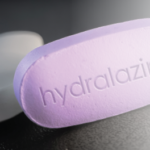Q: Can you also talk about how intravenous immunoglobulin (IVIG) was mentioned in the guidelines?
Dr. Chung: One of the reasons IVIG got incorporated is because it’s one of the few treatments that actually has a randomized controlled trial behind it. It wasn’t large, but there was a trial of IVIG for refractory disease.
I’ll be the first to say we shouldn’t be thinking about IVIG as a treatment for ANCA-associated vasculitis for the vast majority of patients, because the vast majority will have reasonable outcomes with rituximab, cyclophosphamide, methotrexate and azathioprine. But IVIG is unique in that it’s not immunosuppressive.
So, for example, if you have a pregnant patient who can’t risk exposure to cyclophosphamide and you’re nervous about giving rituximab, then IVIG is something you can use as a bridge, before using other therapies. Or you can consider IVIG in a patient who is septic from the other therapies you’ve given them, and yet still seems to have active vasculitis. A number of my patients do get IVIG, but it’s because of hypogammaglobulinemia from rituximab; it’s not for ANCA-associated vasculitis directly.
Q: What about the use of avacopan for ANCA-associated vasculitis? The phase 3 ADVOCATE trial has now been published. How will it change things?12
Dr. Chung: I can punt and say that we only considered therapies that are FDA [U.S. Food & Drug Administration] approved and that patients have access to. We could spend an entire episode talking about the ADVOCATE trial.
I will say overall though, one of the messages we received from the patient panel was that anything we can do to minimize glucocorticoid exposure and glucocorticoid toxicity is a good thing. This led to the recommendation for the lower dose glucocorticoid regimen being recommended from PEXIVAS.
I suspect if avacopan is approved, future guidelines will take a look and may come out with a recommendation supporting its use. It is premature for me to say that, but there is an overall sense that we should limit glucocorticoids for our patients, and if this allows us to do so in a safe fashion, I think many of us will be excited to do so.
 Michael Putman, MD (@EBRheum), is an assistant professor at the Medical College of Wisconsin, Wauwatosa, where he is the associate fellowship program director and the medical director of the vasculitis program.
Michael Putman, MD (@EBRheum), is an assistant professor at the Medical College of Wisconsin, Wauwatosa, where he is the associate fellowship program director and the medical director of the vasculitis program.

